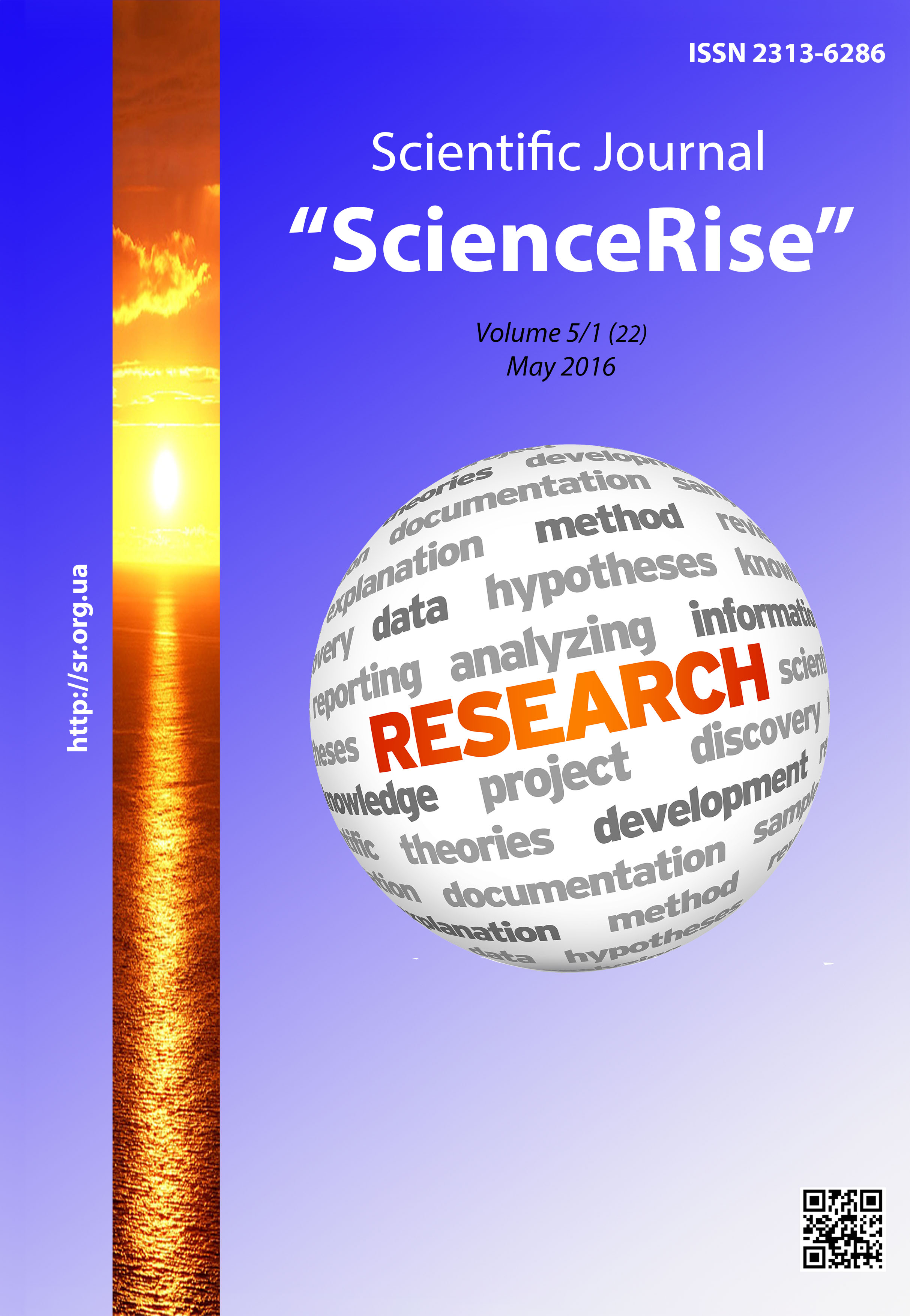Исторический процесс и небесный менеджмент: месседж Гесиода
DOI :
https://doi.org/10.15587/2313-8416.2016.69142Mots-clés :
Гесиод, миф о расах, небесный менеджмент, железный век, историософия, регрессRésumé
Статья посвящена экспликации теологических и аксиологических воззрений Гесиода, лежащих в основе его историософской модели. Поэт сформулировал проблему, которая стала первым философским вопросом в греческой культуре – проблему несоответствия сущего и должного. Поднятая им тема стала отправной точкой греческого интеллектуального проекта, и именно Гесиод способствовал тому, что философия зародилась на его родине
Références
Halapsis, A. (2016). Marcus Aurelius and the concept of apotheosis in the ancient worldview. ScienceRise, 4/1 (21), 54–59. doi: 10.15587/2313-8416.2016.67547
Herodotus. (1975). The Persian wars. Cambridge, MA; London: Harvard University Press; William Heinemann, 504.
Spengler, O. (1926). The decline of the West: Form and actuality. New York, NY: Alfred A. Knopf, 443.
Most, G. W. (2006). Introduction. Hesiod. Theogony. Works and Days. Testimonia. Cambridge, MA; London: Harvard University Press, i–lxxv.
Hesiod. (2001). Polnoe sobranie tekstov [Complete Works]. Moscow: Labirint, 256.
Hesiod. (2006). Theogony. Works and Days. Testimonia. Cambridge, MA; London: Harvard University Press, lxxxii, 308.
Barnett, R. D. (1945). The epic of Kumarbi and the Theogony of Hesiod. The Journal of Hellenic Studies, 65, 100. doi: 10.2307/626341
Eliade, M. (1978). A history of religious ideas. Chicago, IL: The University of Chicago Press, xvii, 489.
Penglase, C. (1997). Greek myths and Mesopotamia: Parallels and influence in the Homeric hymns and Hesiod. London; New York, NY: Routledge, 250.
Haubold, J. (2002). Greek epic: a Near Eastern genre? Proceedings of the Cambridge Philological Society, 48, 1–19. doi: 10.1017/s006867350000081x
Van Noorden, H. (2015). Playing Hesiod: The “Myth of the Races” in classical Antiquity. Cambridge: Cambridge University Press, 350.
Scully, S. (2016). Hesiod’s Theogony: From Near Eastern creation myths to paradise lost. New York, NY: Oxford University Press, 288. doi: 10.1093/acprof:oso/9780190253967.001.0001
Nelson, S. A. (1998). God and the land: The Metaphysics of farming in Hesiod and Vergil. With a translation of Hesiod’s Works and Days by David Grene. New York, NY; Oxford: Oxford University Press, xvi, 252.
Koning, H. H. (2010). Hesiod, the other poet: Ancient reception of a cultural icon. Leiden; Boston, MA: Brill, ix, 439. doi: 10.1163/ej.9789004186163.i-440
Hunter, R. (2014). Hesiodic voices: Studies in the Ancient reception of Hesiod’s Works and Days. New York, NY: Cambridge University Press, viii, 338. doi: 10.1017/cbo9781107110816
Strauss Clay, J. (2003). Hesiod’s cosmos. Cambridge: Cambridge University Press, xii, 202. doi: 10.1017/cbo9780511482397
Plato. (1997). Complete works. Indianapolis, IN; Cambridge, MA: Hackett Publishing Company, 1838.
Horace, C. F. (1970). Ody, epody, satiry, poslaniya [Odes, epodov, satires, letters]. Moscow: Khudozhestvennaya literature, 479.
Strauss Clay, J., Gilan, A. (2014). The Hittite “Song of Emergence” and the Theogony. Philologus, 158 (1), 1–9. doi: 10.1515/phil-2014-0001
Walcot, P. (1956). The text of Hesiod’s Theogony and the Hittite epic of Kumarbi. The Classical Quarterly, 6 (3-4), 198. doi: 10.1017/s0009838800020176
Walcot, P. (1966). Hesiod and the Near East. Cardiff: University of Wales Press, xiii, 154.
West, M. L. (1999). The East face of Helicon: West Asiatic elements in Greek poetry and myth. New York, NY: Clarendon Press, xxvi, 662.
Halapsis, A. (2010). Totalnost istorii [Totality of history]. Grani, 5 (73), 33–37.
The New Oxford annotated Bible. New revised standard version. With the Apocrypha (2010). New York, NY: Oxford University Press, 2416.
Pseudo-Dionysius. (1899). The works of Dionysius the Areopagite. London: James Parker & Co., xx, 168.
Téléchargements
Publié-e
Numéro
Rubrique
Licence
(c) Tous droits réservés Алексей Владиславович Халапсис 2016

Cette œuvre est sous licence Creative Commons Attribution 4.0 International.
Our journal abides by the Creative Commons CC BY copyright rights and permissions for open access journals.
Authors, who are published in this journal, agree to the following conditions:
1. The authors reserve the right to authorship of the work and pass the first publication right of this work to the journal under the terms of a Creative Commons CC BY, which allows others to freely distribute the published research with the obligatory reference to the authors of the original work and the first publication of the work in this journal.
2. The authors have the right to conclude separate supplement agreements that relate to non-exclusive work distribution in the form in which it has been published by the journal (for example, to upload the work to the online storage of the journal or publish it as part of a monograph), provided that the reference to the first publication of the work in this journal is included.

